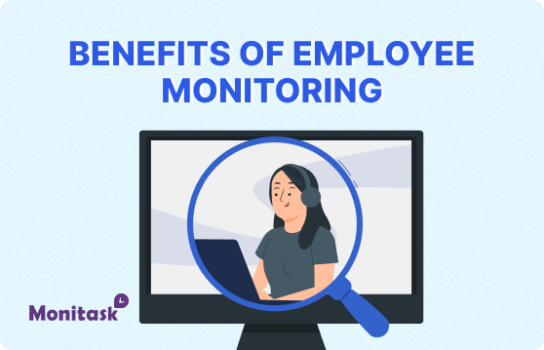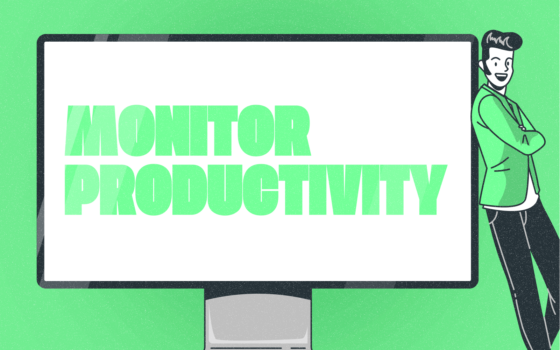Interview Note Taking
Understanding Interview Note Taking: A Comprehensive Guide
In the realm of Human Resources, interview note taking is an essential skill that can make or break the hiring process. It's more than just scribbling down random thoughts; it's about capturing the essence of a candidate's responses, their behavior, and the overall impression they leave. This comprehensive guide will delve into the intricacies of interview note taking, providing HR professionals with the tools and techniques to master this crucial aspect of the recruitment process.
The Importance of Effective Interview Note Taking
Interview note taking serves multiple purposes in the hiring process. Firstly, it helps interviewers remember key details about candidates, especially when conducting multiple interviews in a day. Secondly, it provides a record for future reference, which is particularly useful when comparing candidates or making final decisions. Lastly, well-documented notes can serve as legal protection in case of any disputes or claims of discrimination.
Moreover, effective note taking demonstrates professionalism and respect towards the candidate. It shows that you're actively listening and valuing their responses, which can enhance the candidate experience and potentially improve your employer brand.
Preparing for Note Taking
Preparation is key to successful interview note taking. Here are some steps to consider:
1. Choose Your Method
Decide whether you'll take notes by hand or use a digital device. Both methods have their pros and cons. Handwritten notes can be less distracting for the candidate but may be slower. Digital notes are faster and easier to organize but might create a barrier between you and the candidate.
2. Create a Template
Develop a standardized template for your notes. This ensures consistency across interviews and makes it easier to compare candidates later. Your template might include sections for the candidate's name, position applied for, date of interview, and specific areas you want to assess (e.g., technical skills, communication skills, cultural fit).
3. Review the Job Description and Resume
Familiarize yourself with the job requirements and the candidate's background before the interview. This will help you focus your note taking on relevant information and spot any discrepancies or areas that need clarification.
During the Interview: Best Practices for Note Taking
Now that you're prepared, let's explore some best practices for taking notes during the actual interview:
1. Focus on Key Information
Don't try to transcribe the entire conversation. Instead, focus on capturing key points, specific examples, and notable quotes. Pay attention to the candidate's skills, experience, and how they align with the job requirements.
2. Use Shorthand and Abbreviations
Develop a system of shorthand and abbreviations to help you write faster. For example, you might use "+" for positive traits, "-" for areas of concern, and "?" for points that need further clarification.
3. Note Non-Verbal Cues
Don't forget to jot down observations about the candidate's body language, tone of voice, and overall demeanor. These non-verbal cues can provide valuable insights into a candidate's confidence, enthusiasm, and interpersonal skills.
4. Maintain Eye Contact
While note taking is important, it shouldn't come at the expense of engaging with the candidate. Maintain regular eye contact and show that you're actively listening. If you need to look down to write something, explain this to the candidate to avoid appearing disinterested.
5. Use a Rating System
Consider implementing a rating system for different competencies or skills. This could be a simple 1-5 scale or a more detailed rubric. Just ensure you're consistent in your ratings across all candidates.
After the Interview: Organizing and Reviewing Your Notes
The work doesn't stop when the interview ends. Here's what to do with your notes post-interview:
1. Review and Clarify
As soon as possible after the interview, review your notes while the conversation is still fresh in your mind. Clarify any ambiguous points and expand on any shorthand that might be unclear later.
2. Summarize Your Impressions
Write a brief summary of your overall impressions of the candidate. Include your thoughts on their strengths, potential areas for development, and how well they might fit into the team and company culture.
3. Organize Digital Notes
If you're using digital notes, ensure they're properly labeled and stored in the appropriate folder or applicant tracking system. This will make it easier to find and reference them later in the hiring process.
4. Secure Your Notes
Remember that interview notes are confidential documents. Store them securely, whether they're physical or digital, and ensure they're only accessible to those involved in the hiring decision.
Legal Considerations in Interview Note Taking
It's crucial to be aware of the legal implications of interview notes. Here are some key points to keep in mind:
1. Stick to Job-Related Information
Only note information that's directly relevant to the job and the candidate's qualifications. Avoid comments about protected characteristics such as age, race, gender, religion, or disability.
2. Be Objective
Keep your notes factual and objective. Avoid making subjective judgments or using language that could be construed as discriminatory.
3. Be Aware of Data Protection Laws
Familiarize yourself with data protection regulations in your jurisdiction. In many places, candidates have the right to request access to notes taken about them during the interview process.
4. Retention Policies
Establish clear policies on how long interview notes should be retained. This can vary depending on local regulations and company policies, but typically ranges from 6 months to 2 years.
Advanced Techniques for Interview Note Taking
As you become more comfortable with basic note taking, you might want to explore some advanced techniques:
1. The STAR Method
When asking behavioral questions, use the STAR method (Situation, Task, Action, Result) to structure your notes. This helps ensure you capture all the important elements of a candidate's response.
2. Mind Mapping
For more visual thinkers, mind mapping can be an effective way to take notes. Start with the candidate's name in the center and branch out to different areas like skills, experience, and personal qualities.
3. Two-Column Method
Divide your note-taking page into two columns. Use one for objective observations (what the candidate said or did) and the other for your subjective impressions or questions that arise.
4. Video Interviews
If conducting video interviews, explore software options that allow for timestamped notes. This can be particularly useful for panel interviews or when you want to revisit specific parts of the conversation.
Common Pitfalls in Interview Note Taking
Even experienced interviewers can fall into certain traps when it comes to note taking. Here are some common pitfalls to avoid:
1. Overreliance on Memory
Don't assume you'll remember everything without notes. Our memories can be surprisingly unreliable, especially when interviewing multiple candidates.
2. Focusing Too Much on Writing
While notes are important, don't let them distract you from actively engaging with the candidate. Find a balance between note taking and maintaining a conversational flow.
3. Ignoring Red Flags
Be sure to note any concerns or inconsistencies that come up during the interview. It's easy to get caught up in positive impressions and overlook potential issues.
4. Lack of Consistency
Ensure you're taking similar types of notes for all candidates. Inconsistent note taking can lead to biased comparisons and potentially unfair hiring decisions.
Technology and Interview Note Taking
As technology continues to evolve, it's impacting the way we conduct interviews and take notes. Here are some technological considerations:
1. Note-Taking Apps
Explore apps specifically designed for interview note taking. These often include features like customizable templates, rating systems, and easy integration with applicant tracking systems.
2. Voice-to-Text Software
Some interviewers are experimenting with voice-to-text software to transcribe interviews in real-time. While this can be efficient, be aware of potential privacy concerns and always get the candidate's consent.
3. AI-Assisted Note Taking
Emerging AI technologies can help summarize and analyze interview notes, potentially identifying patterns or insights that human reviewers might miss. However, it's important to use these tools ethically and transparently.
4. Collaborative Tools
For panel interviews, consider using collaborative note-taking tools that allow multiple interviewers to contribute in real-time.
Training and Improving Note-Taking Skills
Like any skill, interview note taking can be improved with practice and training. Here are some strategies for enhancing your note-taking abilities:
1. Mock Interviews
Practice your note-taking skills in mock interviews with colleagues. This allows you to refine your technique without the pressure of a real interview situation.
2. Review and Reflect
Regularly review your old interview notes. Reflect on what information was most useful in the hiring decision and what you could have captured better.
3. Seek Feedback
Ask colleagues or supervisors to review your notes and provide feedback. They might offer insights on areas for improvement or alternative techniques to try.
4. Stay Updated
Keep abreast of new developments in interview techniques and note-taking methods. Attend workshops, webinars, or conferences focused on recruitment and interviewing skills.
Conclusion: The Art and Science of Interview Note Taking
Mastering the skill of interview note taking is both an art and a science. It requires a delicate balance of active listening, quick thinking, and efficient writing. By following the best practices outlined in this guide, you can enhance your note-taking abilities and ultimately make more informed hiring decisions.
Remember, the goal of interview notes is not just to record information, but to capture the essence of each candidate in a way that facilitates fair and effective comparison. With practice and refinement, your notes can become a powerful tool in your recruitment arsenal, helping you identify the best talent for your organization.
As you continue to hone your interview note-taking skills, remain open to new techniques and technologies. The field of HR is constantly evolving, and staying adaptable will ensure you're always prepared to conduct thorough, insightful interviews. Ultimately, effective note taking is a key component of successful hiring, contributing to building strong, diverse, and talented teams that drive organizational success.


